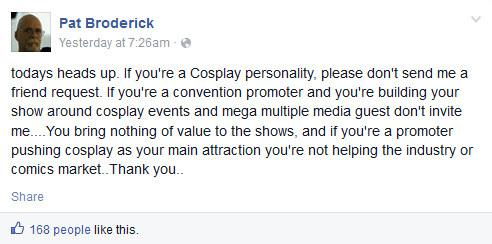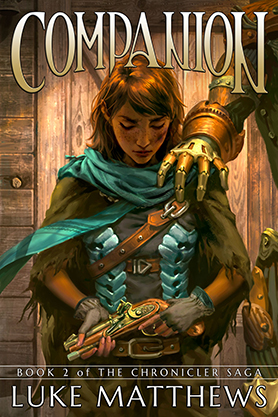Note: The feature image for this post has nothing to do with the post at all. It’s just a picture of the Yaquina Bay Bridge in Newport, Oregon. A place that equates to serenity for me, so the image reminds me of that serenity in a time where I’m struggling to find it.
I keep a word document on my desktop entitled “Blog Post”, formatted in a way that makes it easy for me to open up, write, and transfer the words to my blog. This morning, I opened up this document and deleted the text that remained there from my “I Voted” post.
It seems fitting.
I’m truly at a loss for words right now (at least, as of this sentence). I’m hoping I’ll find them as I write this, so just be warned this post might ramble a bit. I just don’t know what to think about my home country right now, or the future of the world we live in. Two days ago, I felt like we stood on a precipice, ready to fall. Today, I know we did not just fall, we jumped. The fear I felt before this election has been replaced by horror, and a strange grieving numbness I can’t seem to shake. I don’t even have room for anger right now.
We elected Donald Trump our President.
I feel like I have to put that down in words to make it real. Because it has to be real for me. I don’t have the luxury of ignoring it or pretending it’s a fantasy or a nightmare. It’s a real thing that has happened in my country, in my world. And I still don’t understand it.
If there’s one part of Trump’s campaign I do understand, it’s the message that drove it home. Not the overt racism and misogyny, but the idea of crumbling infrastructure and rural towns in danger. It’s a message that resonates with a lot of folks who’ve been led to believe that “liberals” don’t actually care about those things (we do). It’s a message driven home by the heads of the GOP for years, by more qualified and intelligent candidates than Trump. It’s a message driven home by (sometimes) legitimate fears (although bolstered by illegitimate fears of “outsiders”). And I believe the contingent of voters who are just looking for a way to change the paradigm in rural America won him the Presidency.
(But not without the help of people who were either purposely or blindly following their party line, regardless of the figure at its head.)
I won’t excuse the fact that those voters are willing to ignore Trump’s blatant sexism and bigotry, but it’s not the part that confuses me the most. The part that just baffles me to my core is that any of those people actually believe that Trump has the power, knowledge, wherewithal, or ability to actually make the changes he so cavalierly promises. He just plain can’t, and won’t, do the things he says he’s going to do. He doesn’t give a solitary fuck about the people of this country, and never will. Trump believes in only one thing: himself. It has always seemed so obvious to me. He’s a liar. A con-man. A classic huckster.
And our nation fell for it. Tens of millions of people fell for it, radicalized, and brought a Trump presidency to fruition, while enough of us who know better, who see him for what he his, failed to mobilize against that radicalized tide. We’re here, in numbers, I know it, but we were lazy and overconfident. We underestimated the power of willingly blind faith.
This was the first Presidential election I ever voted in. Never in the past has a Presidential election had much of a direct effect on my life. I completely understand that comes from a place of privilege, but as I looked upon our previous candidates, even when I saw policies and values I didn’t necessarily agree with, I saw men of intelligence and reason. I never saw a demagogue or a tyrant in the face of opposition like George W. Bush or John McCain or Mitt Romney. Opposing viewpoints, sure, but never fascism or even anything near its like. Austerity, at worst. I was moved to finally vote in this election for two reasons:
1. I did see fascism in Donald Trump’s positions, in his words, in his frightening echo of tyrants past. I saw his lies and his bigotry and the hatred and divisiveness in his heart.
2. I saw in Hillary Clinton a historic chance for this country to continue the progress we’ve worked so hard to build. To become “Stronger Together”. To elect our first woman President, and show the world we weren’t as problematic as everyone thinks we are. To move forward.
I thought, naively, perhaps, that if someone as ambivalent as I’ve been was moved to vote, certainly there would be enough others. I was so very wrong.
I never voted in the past because I – correctly or not – never believed my vote mattered. I was hypocritical in that way, because I disliked that opinion when others voiced it, but held that very belief in private. My wife very pointedly exposed that hypocrisy in me, opening a wound that I saw fit to close by registering to vote, and participating in my first election, with the intent to continue voting in the future. But there’s a new wound there, in my psyche, bred now of that same cynicism, telling me my vote doesn’t matter because in this case, it didn’t. This might be the hardest thing to push past, for me.
I know people who will be directly impacted by the hateful policies that Trump – with his now Republican-controlled Congress and whatever Supreme Court Justice he appoints – will have carte blanche to invoke. Even if Democrats take back the House or Senate in the 2018 mid-terms, that Supreme Court has the power to cause direct harm for decades coming. The only hope is that the moderate Republicans who opposed Trump during the election have the strength to stand against him when his policies are overtly harmful. But that’s a very, very slim hope.
Hope is what I lack. I don’t know how to move forward when I don’t see a clear path through. I don’t know how to continue trudging away at my daily life when it all feels so insignificant. I feel broken. Trod upon. And feeling that way as a relatively privileged white male, I can’t even fathom how women, Muslims, and people of color feel right now (and I won’t speculate, because that’s not my story to tell).
I’m horrified. I’m numb. The last fifteen or more years of my life has been about becoming better, becoming more open, and opening myself to the world through writing and social media. Expanding my bubble to become more inviting and inclusive. I still want to move in that direction, but now I’m so frightened by the presence of 59 million people who voted for fascism, I fear my only coping mechanism might be to simply contract. To build a shell and hide within it; to eschew trust in the absence of hope.
Because I have a reputation, you see. One that I’ve never been able to fully break. A stereotype of abrasiveness. A shadow of exclusion from my twenties that now, as I approach forty and have completely erased within myself, still darkens my path. If I haven’t been able to make those around me see the openness I’ve cultivated after years of living in a society that had finally started to praise it as a virtue, how am I supposed to leave myself vulnerable in a society that threatens to preach isolationism?
I know in my head I need to be strong. Both my head and my heart are failing to find reservoirs of strength to draw upon, though. My wife is a pillar of strength in my life, but she’s just as devastated as I am right now. Perhaps moreso, because this was also her first vote, and she was ecstatic to vote for the first woman President. Hillary would’ve been her President. We’re both broken stones, standing only by leaning on one another. And that doesn’t leave me much strength for anyone else.
All I can do is try. My life contracts down to very few things: caring for my wife, caring for our animals, putting words on paper, and recreation if I can bear it. I will try my hardest to be available to my friends, and fellow gamers and writers, to anyone I know who needs a friend. If you’re one of the people who thinks I’m abrasive or standoffish or intimidating, all I can give you right now are my words, to tell you that I’m here, I’m open, and I would rather move forward with you than suffer and stew alone, or let you do the same.
I’m not comfortable with vulnerability, so I’m not exactly sure what shape this offer will take, but I just know I can’t stand by and not make it. Beyond that, I don’t know where I’ll go or what I’ll do. Right now, I’m hoping this will be enough. It has to be enough.




